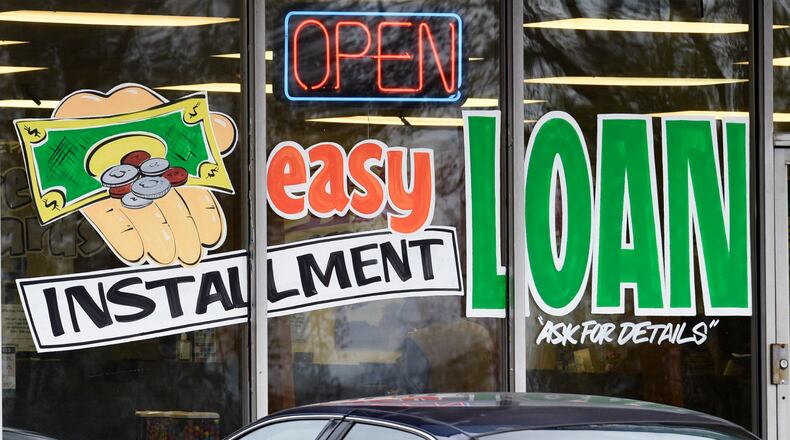RELATED: Springfield pastor seeking local support for payday lending bill
House Bill 123, sponsored by Koehler and Rep. Michael Ashford, D-Toledo, closes a loophole in state law that allows payday lenders and auto title lenders to operate without adhering to previously passed regulations. The bill was introduced March 8.
Koehler held up photos of payday stores on East Main Street in Springfield during his testimony in the House.
“As soon as you pass the ‘Welcome to Springfield’ sign, there are nine (payday lenders) in the first 5,200 feet,” Koehler told the committee.
Koehler’s plan is designed to force lenders to operate under a law first passed and supported by voters statewide in 2008.
TRENDING STORY: 6-month sentence in child sex assault case: 3 things to know
“Everyone thinks we took care of this in 2008 but in reality today, with 650 payday lenders in the state of Ohio, no one is licensed under the law from 2008,” Koehler said.
The bill would cap loan interest rates at 28 percent and limit monthly service fees charged to customers.
The Ohio Consumer Lenders Association, which represents the payday industry, voiced their opposition to the bill when it was first introduced, saying the businesses can’t operate under the proposed changes.
“Calls by consumer groups and legislators to choke off access to credit to under-banked people in this country shows a lack of understanding of middle class Americans and is blatant discrimination,” spokesman Patrick Crowley has said.
DETAILS: $1.3K gold coin found in Springfield Salvation Army kettle — again
The industry charges fees, not interest rates, Crowley has said, and their services help people pay medical bills and buy groceries, or “everyday things that people need to survive.”
Backers of the plan from Springfield and other communities packed the House committee room, including Rev. Carl Ruby of Springfield’s Central Christian Church.
“We know this is just the beginning of the battle and there will be a lot of push-back from the industry,” Ruby said.
The crowd at the hearing included several opponents. Rev. Aaron Phillips of the Cleveland Clergy Coalition said he feared more regulation would force payday lenders to close. The loans are better than bouncing a check, he said.
“We need financial choices and this is a choice for us,” Phillips said. “Many people use this as a tool to pay their rent, to pay their car note and to pay their utility bill.”
Rep. Niraj Antani, R-Miamisburg, believes the regulations in the bill would be harmful to consumers.
“When you shut down access to credit, it will cause those who are struggling to be harmed,” Antani said.
Koehler said he has been assured by House leadership that he will be granted at least two additional hearings on the bill, one to allow supporters to testify and another to feature opponents. Beyond that, said Koehler, there are no guarantees.
Unmatched coverage
The Springfield News-Sun digs into important stories about jobs and the economy in Clark and Champaign counties, including recent stories about how driverless trucks could affect Springfield and tracking local unemployment rates.
About the Author
